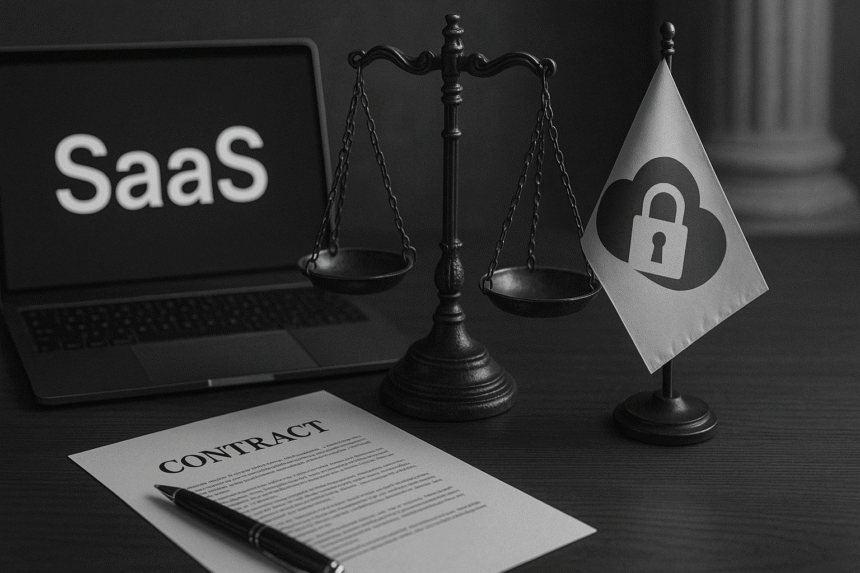What I Learned in My First Year Offering SaaS Legal Services
Starting something new is always a mix of excitement and uncertainty. When I began offering legal support for Software-as-a-Service (SaaS) companies, I quickly realized that this niche comes with its own unique challenges and lessons. After one year of working with tech founders, developers, and investors, I can confidently say that understanding how to deliver SaaS legal services requires a specific mindset, legal skill set, and business awareness.
In this post, I’ll share the most important lessons I’ve learned so far—from handling subscription contracts and IP protections to navigating billing models and client expectations. If you’re a lawyer entering this space or a SaaS company looking to understand how legal support should be delivered, this guide is for you.
Lesson 1: Understand the Core SaaS Contract Types
Unlike traditional businesses, SaaS companies rely on recurring revenue and digital delivery. This changes how contracts are drafted and negotiated. The most common SaaS contracts I’ve worked on include:
- Master Service Agreements (MSAs): The backbone of most SaaS relationships, these outline general terms like license rights, payment terms, and termination.
- Subscription Agreements: Define the specific service levels, features, user limits, and pricing tied to a monthly or annual plan.
- Service Level Agreements (SLAs): Detail uptime guarantees, response times, and remedies for downtime.
- End User License Agreements (EULAs): Govern the use of software by end users, especially in B2C models.
Drafting and reviewing these agreements taught me that clarity is key—especially around what’s included, what’s not, and when the provider can change terms.
Lesson 2: Data Protection Is Not Optional
In every jurisdiction I’ve worked with, data protection has become a legal must-have—not a nice-to-have. SaaS companies often collect and store large amounts of user data, which makes them subject to global privacy laws.
Here’s what I’ve had to include or advise on regularly:
- GDPR compliance for EU users
- California Consumer Privacy Act (CCPA) clauses for U.S. clients
- Data Processing Agreements (DPAs) between providers and clients
- Cross-border data transfers using Standard Contractual Clauses (SCCs)
Clients often don’t realize they need these until a big client requests them. As a lawyer, being proactive in flagging privacy issues has added real value.
Lesson 3: Subscription Terms and Auto-Renewals Can Be Risky
SaaS legal services must deal with the delicate balance between client retention and legal transparency. Many SaaS platforms use auto-renewal clauses to lock in revenue, but these can backfire if not clearly disclosed.
What I’ve learned:
- Always highlight auto-renewal clauses and the cancellation process
- Check local laws—some jurisdictions require extra notice or user opt-in
- Make sure refund policies and downgrade options are explained in plain language
Ambiguous subscription terms lead to chargebacks, complaints, and even lawsuits.
Lesson 4: Working with Founders and Developers Requires Adaptability
Legal work for SaaS clients isn’t always done with legal teams—it’s often direct with founders or product developers. That changes how you communicate and collaborate.
Here’s what’s helped me succeed:
- Use simple, actionable language: Avoid legal jargon. Break it down.
- Be flexible with tools: I’ve used Slack, Notion, Figma, and GitHub to collaborate with clients.
- Understand their product: You don’t need to code, but you must know how the SaaS works to write terms and policies that match its functionality.
Being tech-literate has been one of the biggest advantages in serving this niche.
Lesson 5: Billing Models and Expectations Are Different
SaaS founders think in Monthly Recurring Revenue (MRR), customer acquisition costs, and burn rate. That affects how they view legal fees.
Here’s how I adapted my services:
- Offer fixed-fee packages: They prefer knowing costs upfront.
- Bundle services: For example, a startup legal kit with an MSA, SLA, privacy policy, and disclaimers.
- Provide legal templates: For early-stage founders, templates with customization offer value at a lower price point.
Transparency and flexibility have helped me earn trust and repeat business.
Conclusion
Offering SaaS legal services has been one of the most exciting and rewarding shifts in my legal career. It’s a field that blends fast-paced tech innovation with the need for clear, adaptable legal frameworks.
From mastering key contract types and data compliance to adjusting billing and communication styles, this past year has given me a deeper appreciation for the unique legal needs of SaaS companies. If you’re a lawyer entering this space, stay curious, stay flexible, and learn to speak both legal and tech. And if you’re a SaaS founder, know that a lawyer who understands your business can be a game-changing partner—not just a box-checker.



Leave a Reply